













The Namibian Chamber of Environment (NCE) is an umbrella Association that provides a forum and mouthpiece for the broader environment sector, that can lobby with government and other parties, that can raise funds for its members and that can represent the sector.
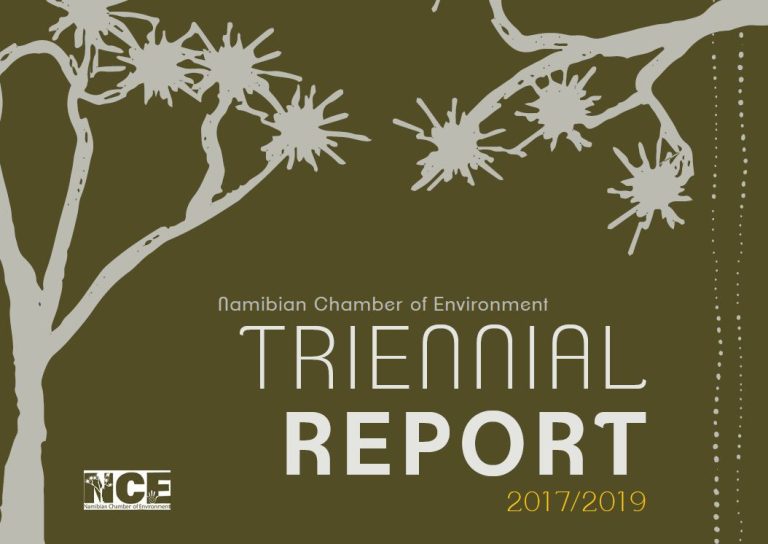
NCE Triennial Report (2016-17 to 2018-19) published
The NCE Triennial Report (covering 2016-17 to 2018-19) has now been published. As well as reports from the Chairman and CEO, it provides an overview of objectives, membership support, policy research and many other aspects of NCE's work.

NCE Bursary Fund Now Open
The Namibian Chamber of Environment has a small bursary fund to assist individuals who wish to further their studies in the fields of conservation, environment and sustainable development, mainly at the level of master’s degree or equivalent.
In 2019 the NCE supported 22 students with bursaries and six with internships.
We are offering a similar number of bursaries and internships for the 2020 academic year.
Application Process
Interested applicants should complete and submit an application form, a concise motivational letter explaining why they should be one of the selected candidates, and provide the required supporting documents.
Applications should reach the NCE at info@n-c-e.org on or before 27 September 2019.
No late applications will be considered.
Eligibility of Applicants
Applicants must have completed at least a primary degree and preferably an honours degree or equivalent.
Applicants must be accepted as full- or part-time students at an accredited university in the SADC region. Students wishing to study outside the SADC region may be supported at the level of those studying in the sub-region and the onus will be on the applicant to raise additional funds.
Applicants must be Namibian citizens.
Preference will be given to motivated students with good academic track records who come from disadvantaged backgrounds.

Bursary and Internship Report (1)
In 2018 we had 45 applications, this year 108. We have 22 successful candidates in total. See the full report on the bursary programme using the link below.
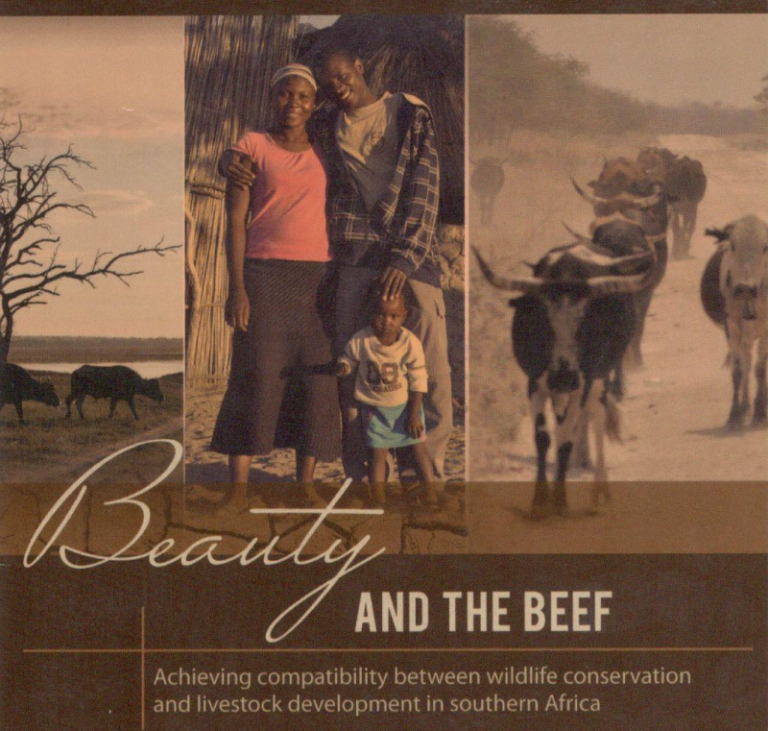
Beauty and the Beef – Achieving compatibility between wildlife conservation and livestock development in southern Africa.
African farmers living in areas with wildlife are faced with a serious dilemma: they cannot sell their healthy, free range beef to the lucrative export market. Current international trade practices dictate that they cannot protect the wildlife and, at the same time, farm their cattle in the same general area. If they want to export their beef to wealthy nations, they will have to get rid of all the wild buffalo or put up environmentally damaging veterinary fences.
Robin Lyonga lives in the spectacular and largely unspoiled environment of the Kavango-Zambezi Transfrontier Conservation Area. He and his community are poor. What should he choose when trying to lift himself and his community out of poverty: protecting the wildlife and pursuing opportunities related to ecotourism and trophy hunting, or turning his back on conservation and selling his cattle into the lucrative beef export market? The truth is that there is a win-win solution: Robin Lyonga and his community can earn an income from conservation and sell their beef to the export market. All that is needed to enable this potentially bright future for millions of African cattle farmers is a small change in attitude on the part of wealthy trading nations.
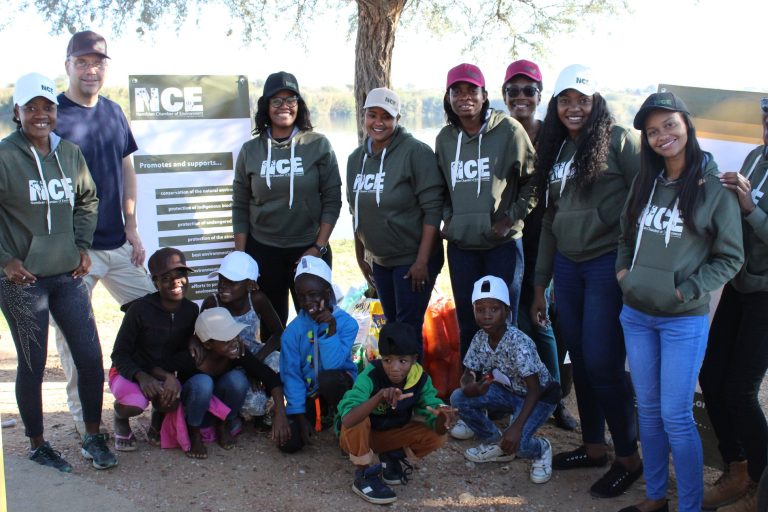
NCE Clean-Up Day 2018
Litter is a multi-faceted problem in Namibia and across the world. For this reason, the NCE supported the President’s call for all Namibians to participate in a Nation-wide Clean-Up Campaign which took place on the 25th May 2018. The aim of this activity was to promote a clean environment as part of Namibia’s aspiration to become the cleanest country in Africa.
Please view our video using the link below.
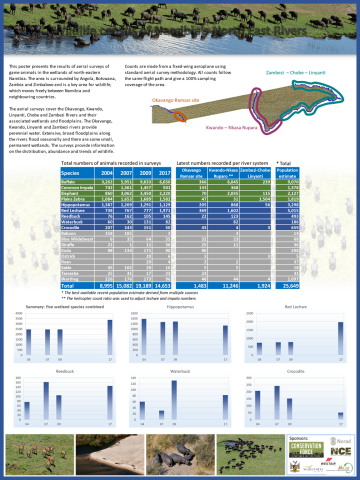
Cessna 182 Aircraft dedicated to conservation
The Cessna 182 has been used on several occasions, with much success.
The use of the aircraft includes:
- Carnivore Conservation
- Anti- Poaching at Etosha and North West Namibia
- Rhino Conservation
- Wetlands survey
The most rewarding aspect about the wetland survey is that of the increased Red Lechwe numbers. Wetlands in the NE parts of Namibia provide a lifeline to many aquatic, semi-aquatic and terrestrial animals such as the Lechwe (Kobus leche leche Gray). As a specialist wetland antelope, confined to that habitat, it is a key indicator species of good conservation in that area.
A BIG thank you to Westair Aviation for their support to conservation through making the aircraft available to the NCE and all its members!
The aircraft is available to the Namibian Chamber of Environment (NCE) and its Members. The aircraft is dedicated to wildlife and environmental protection, conservation and related monitoring and research work of a non-commercial nature. Get more information here.

NCE Bursary and Mentorship Report
From the 45 bursary applications that were received, 13 applicants were successful.
Please read the full report using the link below.
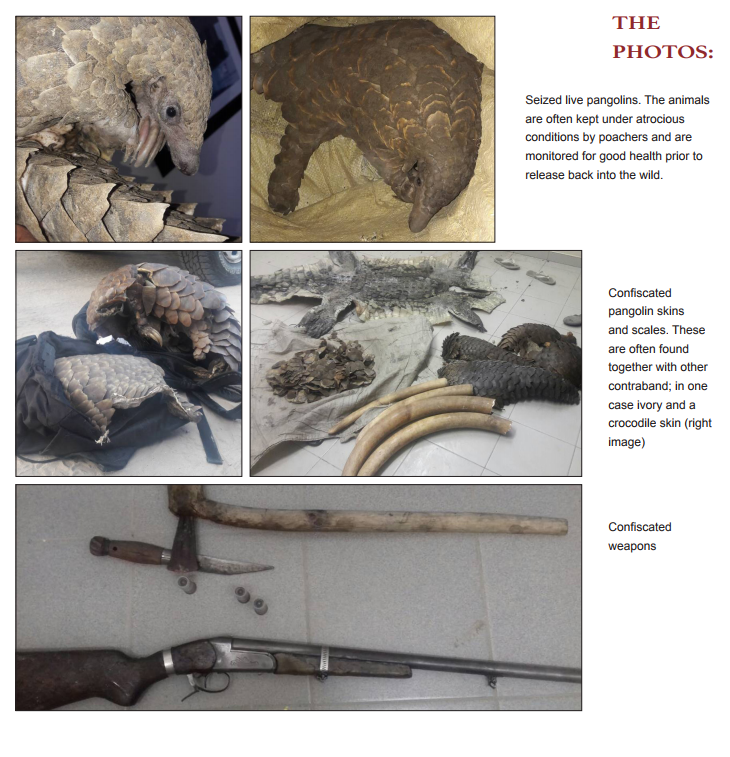
World Pangolin Day 2018
In celebration of World Pangolin Day, this coming Saturday, 17 February 2018, we would like to draw your attention to a concern we have about the illegal capture, killing and trade in pangolins in Namibia.
Statistics in Namibia:
Pangolin cases from 21st July 2017 to 31 January 2018
Number of cases: 34
Number of arrests: 77
Live pangolin seizure: 19
Pangolin skin seizure: 32
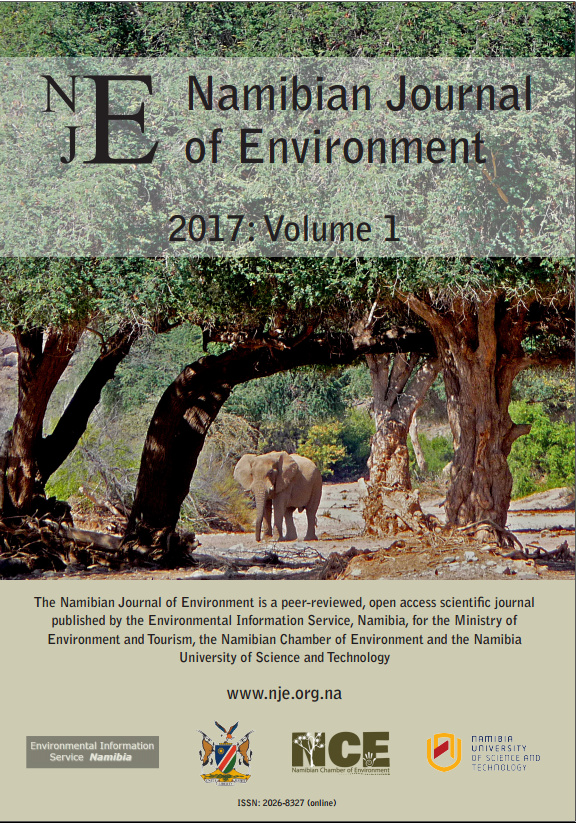
Namibian Journal of Environment
On Thursday 7th December, the Namibian Journal of Environment was launched and went live. We published 13 papers, nine in peer-reviewed Section A and four in editor-reviewed Section B. These papers make up Volume 1 (2017). The papers accepted in 2018 will make up Volume 2. We saved up the papers in Volume 1 for the launch. In future, papers will be added to the Journal as they are ready for publishing.
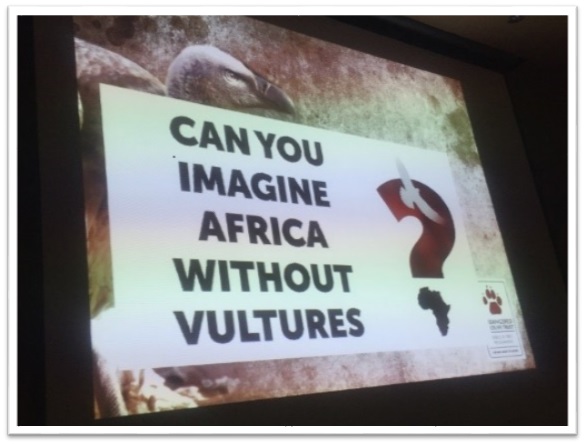
Vulture Poison Workshop
On 24 November, a Vulture Workshop was held at Sossusvlei Lodge. The workshop was organised by the Greater Sossusvlei-Namib Landscape Association (GSNL), in response to a vulture poisoning incident in October 2017 where several lapped-faced vultures were poisoned by a local livestock farmer.
This incident highlighted the fact that training was needed for local managers in order to collect samples from poisoned birds, collect evidence from a crime scene, initiate the appropriate law-enforcement response, safely rehabilitate a poison site and assist with the rehabilitation of surviving birds.
Together with Liz Komen, of NARREC, we arranged an emergency workshop to educate and inform members of the landscape.
Download the report for more information.